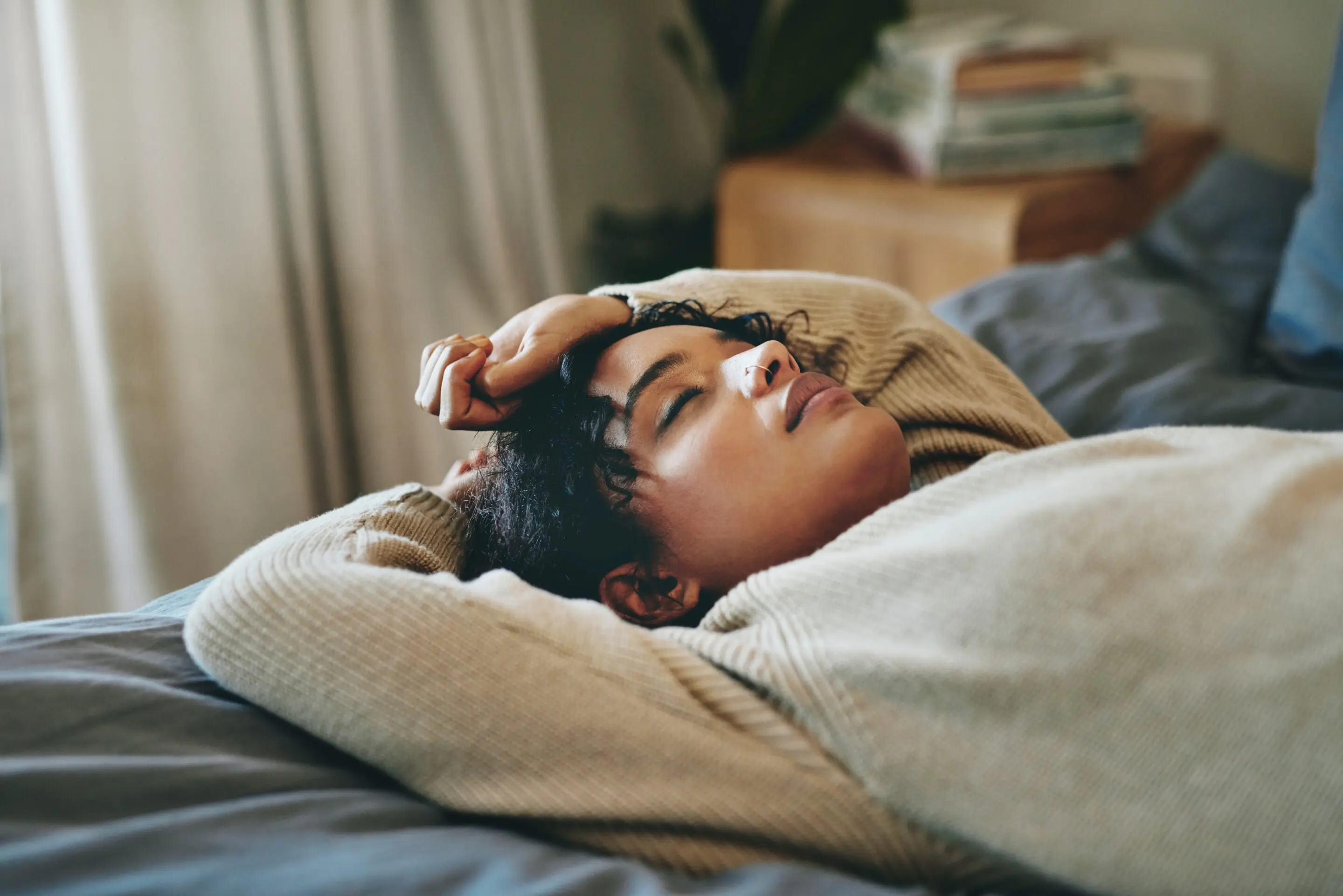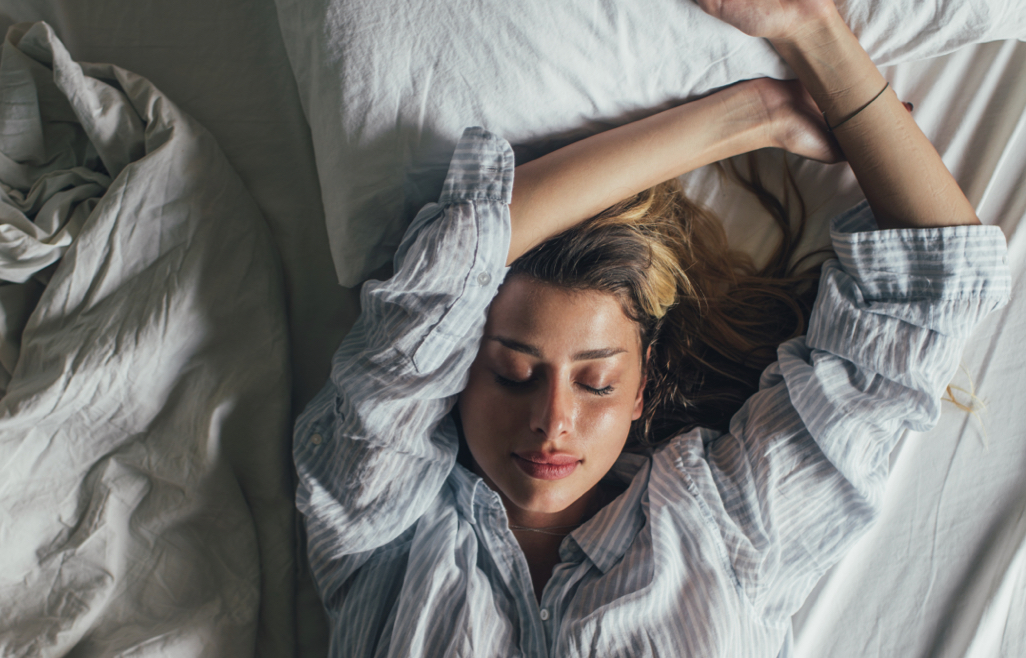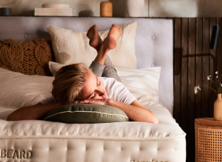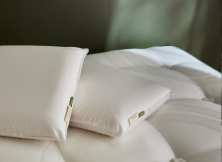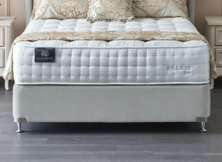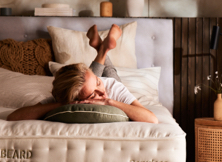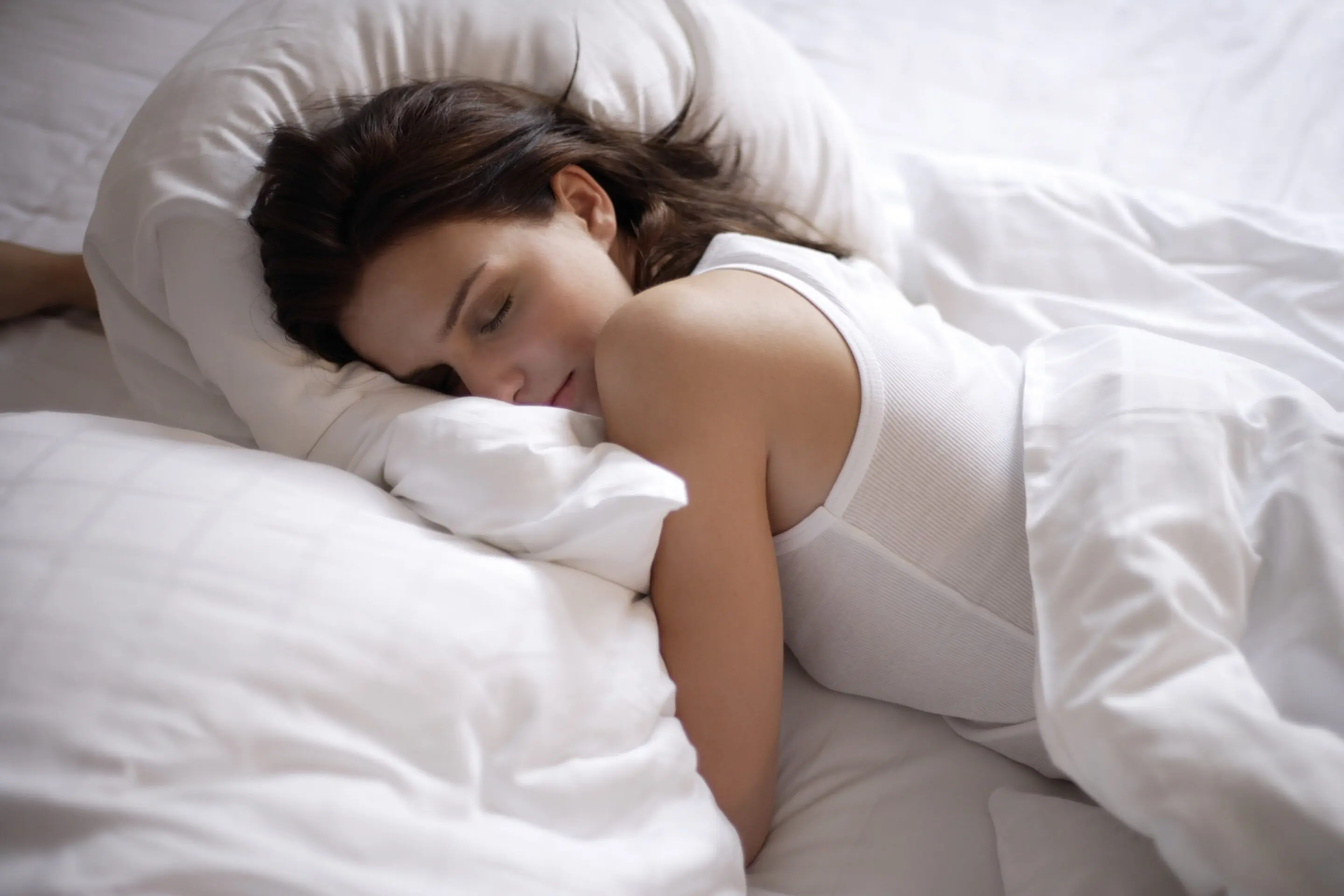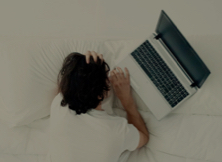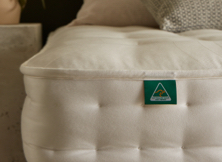A good night’s sleep is essential for our overall health and wellbeing — and that includes our mental health. The amount of rest we get is closely linked to our psychological and emotional state, as well as our ability to handle the challenges life throws at us.
COVID-19 has tested all of us in unexpected ways and put us in incredibly stressful situations. If you’ve suffered from sleepless nights over the past few months, you’re not alone. Amidst ongoing anxiety at the state of the world, a large number of people are struggling with sleepless nights and increasingly vivid dreams.

However, the very thing we’re missing—sleep—is also the very thing that we need to help us get through these tough times. A healthy amount of sleep gives us the mental resilience and clarity to navigate difficult situations, and helps us operate at our best. On the flipside, the effects of not enough sleep can affect our mental health and our overall mood.
So how exactly does sleep affect our mental health, and what can you do to improve each one?
The cost of inadequate sleep
Before the pandemic hit, a significant number of us were already struggling to get a healthy amount of sleep. Studies show that 4 in 10 Australians and 1 in 3 New Zealanders currently aren’t getting enough sleep—and this number has no doubt increased amidst the stress and uncertainty caused by COVID-19.
Inadequate sleep wreaks havoc on our health, leaving us with a greater risk of developing depression, anxiety, and other mental health conditions. But why is this so?
The link between sleep health and mental health
Sleep is nature’s repair for the brain. Like our bodies, our brain needs rest and recovery to function at its best. Sleep—and in particular, REM sleep—repairs and maintains our brain, restoring it and preparing it for the day ahead.
When we don’t get enough sleep, it impacts our brain’s ability to function properly. The Current Biology Journal recently reported that the brain processes and consolidates complex information when we sleep, allowing us to make decisions more easily when we are awake the next day. This brings some insight into the old saying, ‘sleep on it’. Insomnia and sleep deprivation affect our ability to make decisions with clarity.
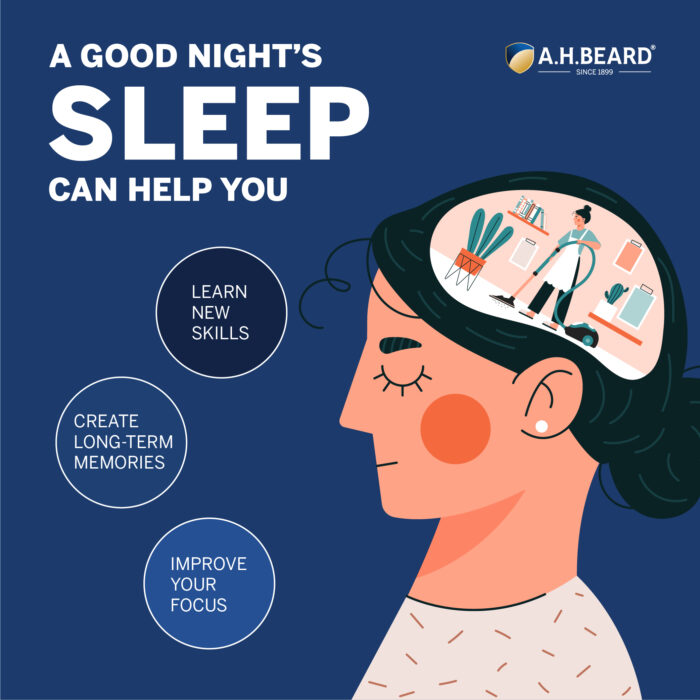
At the same time, research from Harvard shows that the consequences of sleep deprivation include being more emotionally vulnerable and more susceptible to negative patterns of thinking. A good night’s sleep fosters emotional resilience – making it easier for us to have a positive outlook on life. If we are well-rested, we are more likely to bounce back from upsetting or stressful events and feelings, instead of giving in to feelings of hopelessness or being overwhelmed.
Sleep also enhances our ability to control emotions through the way it regulates stress hormones in the body. When we don’t sleep at night, our bodies produce more stress hormones than usual. REM sleep allows the brain to produce chemicals that suppress the stress hormone – contributing to a more relaxed mood the next day. The amount of sleep we get directly contributes to how we respond to adversity, and cope with the challenges of a busy life.
How to improve sleep and your mental health
Sleep is a key pillar of health, along with exercise and diet. However, it’s more essential now than ever because it offers a range of benefits for our mental wellbeing.
“Sleep and good mental health go hand in hand with research showing that people who sleep poorly are much more likely to develop significant mental illness, including depression and anxiety, than those who sleep well,” Dr Carmel Harrington says
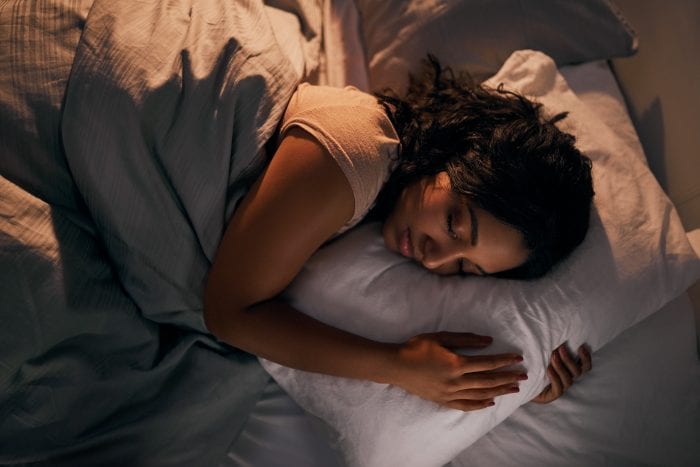
While we can’t change what’s happening around us, there are a number of steps that we can take to improve sleep during this time.
- Make your bedroom your sanctuary. Working remotely shouldn’t translate to working from bed. Reserve your bedroom for sleep, and invest in a quality mattress, quilt and pillows to ensure you have the best sleep environment possible.
- Stay active and eat well. Along with quality sleep and mental wellbeing, exercise and nutrition are essential pillars for health and wellbeing. Move your body every day — even 15 minutes can help! At the same time, try to choose fresh food whenever possible, avoid heavy meals too close to bedtime, and try out these 15 foods to help you sleep.
- Utilise relaxation techniques. Meditation, deep breathing, and yoga offer a range of benefits, from increased mental clarity to better quality of sleep. Apps like Headspace and Calm have guided programs to help you de-stress and relax in as little as ten minutes a day. Alternatively, kill two birds with one stone and practice yoga to relax and get your daily movement in.
- Set a digital curfew. We’re spending more time indoors and on screens than ever, particularly during COVID-19. However, too much screen time is one of the most common causes of poor sleep. The blue light emitted from technology can inhibit the production of melatonin, an important hormone that regulates sleep. This is particularly evident in teenagers, who might be more prone to spending a lot of time on their phones before bedtime. Unplug 1-2 hours before going to bed and get your family to do the same — that means no phones, no laptops, no Netflix. This will give your body and mind time to unwind and prepare for sleep.
- Avoid stimulants in the afternoon. Consuming caffeine can impact sleep quality up to 7 hours after it’s ingested, and can dramatically affect our ability to drift off. Replace your coffee or tea in the afternoon with a herbal tea instead.
Teaming up with Beyond Blue to promote mental wellbeing through quality sleep
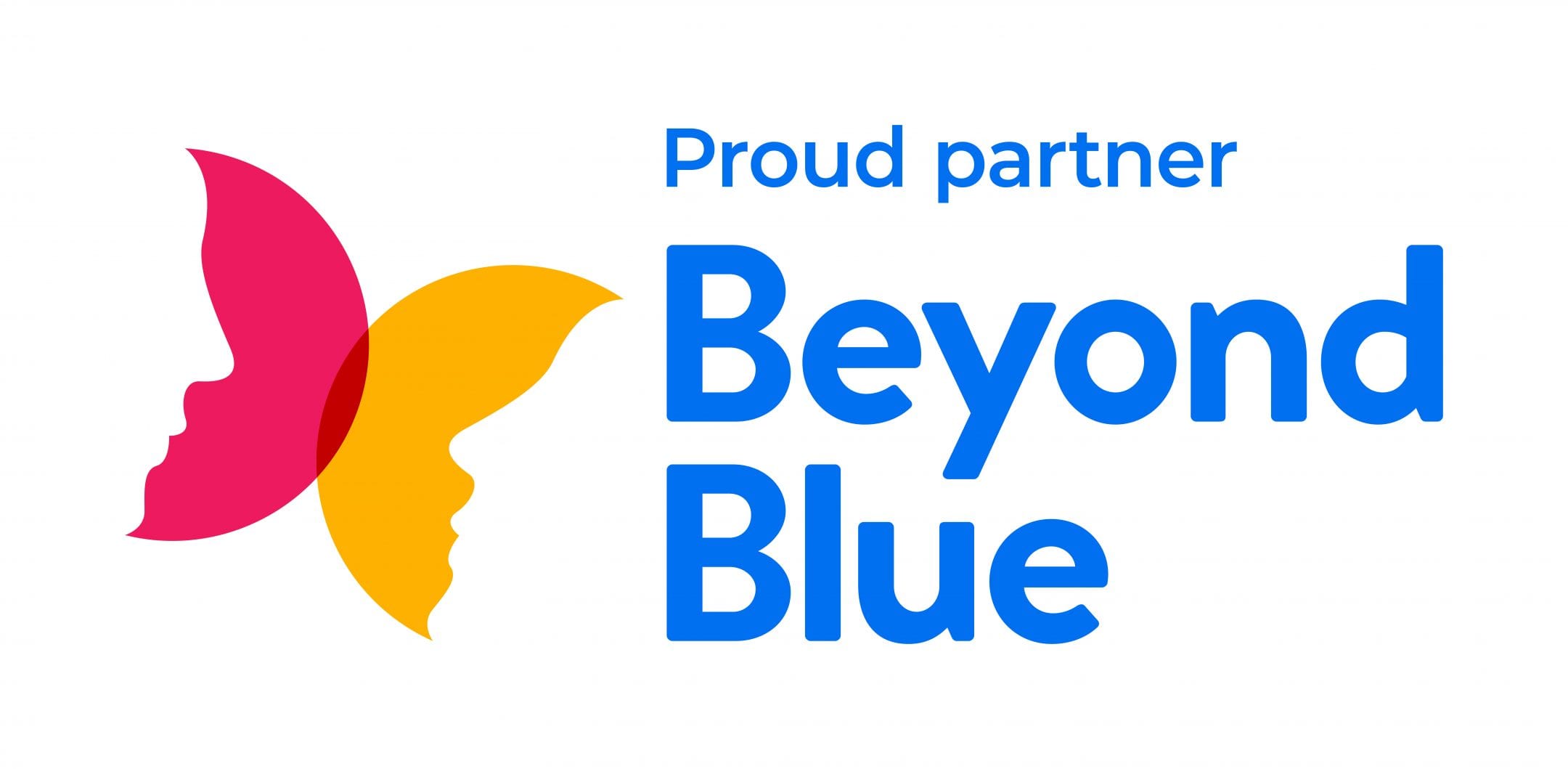
Lastly, speak to someone if you’re experiencing difficulties.
There’s no way around it: this is a challenging time for everyone. Even though restrictions are gradually lifting and things are looking up, many of us might still feel the effects of the pandemic on our mental health for months or years to come.
If you are experiencing mental health issues it’s important to reach out. Organisations like Beyond Blue have a dedicated support service, where you can speak to a counselor or connect with others in the online community.
We understand the importance of a good night’s sleep for overall mental wellbeing. That’s why we’ve partnered with Beyond Blue to bring awareness to the link between sleep and mental health. By purchasing an A.H. Beard mattress, you’re supporting Beyond Blue to help empower all Australians to achieve their best possible mental health.

